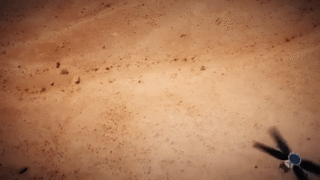NASA is sending a helicopter to Mars

Once the rover is on the planet's surface, a suitable location will be found to deploy the helicopter down from the vehicle and place it onto the ground. The rover then will be driven away from the helicopter to a safe distance from which it will relay commands. After its batteries are charged and a myriad of tests are performed, controllers on Earth will command the Mars Helicopter to take its first autonomous flight into history.
"We don't have a pilot and Earth will be several light minutes away, so there is no way to joystick this mission in real time," said (Mimi Aung, Mars Helicopter project manager at NASA's Jet Propulsion Laboratory.) "Instead, we have an autonomous capability that will be able to receive and interpret commands from the (rover on the) ground, and then fly the mission on its own."
"The ability to see clearly what lies beyond the next hill is crucial for future explorers," said Zurbuchen. "We already have great views of Mars from the surface as well as from orbit. With the added dimension of a bird's-eye view from a 'marscopter,' we can only imagine what future missions will achieve."
Mars 2020 will launch on a United Launch Alliance (ULA) Atlas V rocket from Space Launch Complex 41 at Cape Canaveral Air Force Station in Florida, and is expected to reach Mars in February 2021.